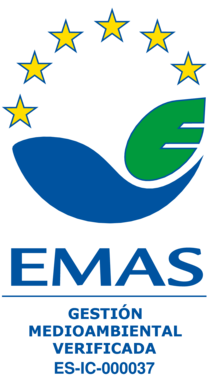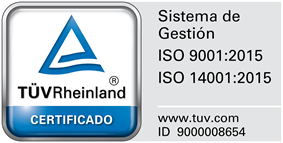Original article: Dr. Grey Stafford: The Last Generation of Killer Whales at SeaWorld
Last week, we discussed advancements in animal training with Dr. Grey Stafford. In this interview, I asked Dr. Stafford about SeaWorld’s decision to end the Orca breeding program.
You may remember when I gave you my thoughts when I first heard that Governor Brown signed a bill into law that would ban Orca breeding in California and make killer whale shows for entertainment purposes illegal. You can watch that video here:
Watch the video below to learn what the current President of IMATA, Dr. Grey Stafford, thought about all this and what he encourages the animal care community to do in order to better the lives of future animals in the face of such destructive legislation and SeaWorld’s inability to correct public misconception.
What do you think? Leave me your comments below.
Kyle: Hi my name is Kyle Kittleson and welcome back to our conversation with Dr. Grey Stafford. Thank you for being here. You’ve been in the animal welfare space for 27 years and no question that the biggest announcement of 2016 was SeaWorld’s decision to have the last generation of killer whales. What are your thoughts about that?
Stafford: Well, on a personal level I take it – I’m very affected by it because I started my career with killer whales, back in Ohio, and I know a lot of great trainers have dedicated their lives to that species, so I think like many people I was shocked by the decision. It’s not unusual for zoos, in genera,l to manage certain species to extinction, in our collection, because of resources…
Kyle: And when you say extinction, we don’t mean the whole population…
Stafford: Not the worldwide species, but the animals that live at a facility. And a lot of reasons that is done is because maybe there are enough animals to to maintain the population going forward. And and it’s it’s a question of resources. Where do you devote your time, your energy, your space, and your staffing, to preserve as many species as possible. And that’s a difficult choice. I think in this case with Orcas, the choice was made for all the wrong reasons – primarily politics and pressure from activist groups. Because the fact the matter is Orcas and human care are thriving today. We learn so much more about what’s happening, not only with the ones living in human care, but the ones in the wild. You know Orcas in British Columbia and elsewhere are in huge trouble. And I just saw a study done at SeaWorld, right now, where they’re actually trying to correlate drone data, photographic data, using captive killer whales SeaWorld to correlate those measurements, so they can then use that same process out in the wild to measure the body composition and condition of wild orcas to see if they’re starving or not which we know that they probably are right now.
Kyle: And guess who’s not doing this type of research that can save the wild populations of killer whales? Almost every other organization out there. All of the “activist” organizations. I put “activists” in quotes because they are working in their best interest, rather than the animal’s best interests. In my opinion.
What, if anything, did you do in 2016 to try and get this, you know, decision to stop or to keep from happening?
Stafford: Well, prior to SeaWorld’s decision, which was a corporate business decision, a friend of ours, Carolyn Hennesy, actor, animal advocate, author – she and I went to her Congressman, Congressman Schiff, Democrat based in Burbank California. And Congressman Schiff has proposed a national ban on Orcas in human care – similar to the Bloom bill which did finally pass in California. And Carolyn and I went there last Thanksgiving weekend and pleaded with him and tried to understand how he arrived at this decision. Why he would put so much effort behind this bill which sets a very dangerous precedent for all species, not just Orcas. We have agencies, we have federal laws that deal with the display, the transfer, etc of exotic endangered species. It’s called the Endangered Species Act, it’s called the Marine Mammal Protection Act and so forth. There is a process, a federal process, that goes through, and there’s a lot of oversight done with it. So, for Congressman Schiff to insert a bill that singles out a particular species to me is a very dangerous precedent. And we were talking with them trying to understand why he had arrived at decision and to try to get him to back away from it. Unfortunately our efforts were in vain because the very next morning he set up his office set up an e-mail blast of fellow members of Congress inviting him to join him on his shift bill which still sits in Congress.
Unfortunately, our efforts were in vain because the very next morning he set up his office set up an e-mail blast of fellow members of Congress inviting him to join him on his Schiff bill which still sits in Congress.
I suspect that given the recent election, that bill is not going to go anywhere, but is still out there and it is troubling that a that Congress would take up this issue for one species when we have those mechanisms already in place and well establish for 50 years.
Kyle: No surprise though, that a politician would make a decision based on his own or her own best interests – rather than the best interest of the people or the animals. But what is surprising to me is that, and I can’t speak for Schiff, but I can’t imagine that this decision did not come without the influence from the movie Blackfish, which has been proven to be inaccurate, not factual. And so in some ways that’s like me making a decision about heart surgery because I watched an episode of Grey’s Anatomy. It doesn’t mean that I am educated in, you know, surgical procedures it just means I watched a movie.
Stafford: Well and that’s why those of us who work with these species, you know, we have a job ahead of us to promote that education – whether it’s someone in a political office, or regulators, are critics, or detractor,s and especially our support of public. You know, the good news is that far more people support zoos and aquariums and support places like SeaWorld, because of the great work that they do. And we have to push back on some of the misinformation and that’s a that’s a tall order but you know what else what other choice do you have?
Kyle: My my biggest critique, and I’ve been very vocal about this, with SeaWorld is that they have never and still don’t put the truth out there of what they do for wild animals. I remember last summer I think they donated $10 million to wild killer whale research. I called five of my friends who worked at SeaWorld and Discovery Cove. And I said, “how great that SeaWorld did this.” And they said, “did what?” And I said, “donated $10 million.” “Oh, we didn’t know about that.” SeaWorld never thought to e-mail their own staff to tell them what they were doing. And I get why they don’t because they really care about the animals. They don’t think about how we should use this for positive press. They just do the right thing. But if you’re going to do the right thing, you also need to make sure that people understand when you buy a ticket to an accredited zoo or aquarium you’re helping those animals and those animal’s wild counterparts
Stafford: Couldn’t say it any better.
And unfortunately, with today’s instantaneous media and 24-hour news cycles, we have to do a better job of promoting the positive things, the successful things, that zoos and aquariums are doing. We can’t rest on our laurels. We can’t, you know, be satisfied with the status quo. And you have to also remember there are entire industries dedicated to shutting zoos and aquariums down. There’s big business in complaining. There’s big business in activism. PETA’s coffers went up 30 percent over the last few years precisely because of their attacks on places like SeaWorld. So, while they’re out there making their money putting others down and trying to put them out of business, we’re busy trying to save species and protecting ourselves and promoting the great work that organizations do. That’s not our focus, that’s not our business plan, but it is something that we have to do a better job of making it a part of the business. And I think unfortunately we have to go that way.
Kyle: You said this and I don’t want to go unnoticed. It’s big business for activism. Yes it is. Remember that. I want people to understand that the name people for the Ethical Treatment of Animals is a great name. It’s a great want that I want that. But when you look at the business of activism rather than the outcome of being an activist you may make different decisions and I don’t encourage anybody to take my word for it. I don’t you encourage you or take your word more at all. I encourage people to go out there and do their own research independently as possible and make their own conclusions but be educated with your decision. What do you think this means for SeaWorld to not have killer whales in the next 20 or 30 years.
Stafford: Yes it is.
Kyle: Remember that. I want people to understand that the name People for the Ethical Treatment of Animals is a great name. I want that. I want that. But when you look at the business of activism rather than the outcome of being an activist you may make different decisions and I don’t encourage anybody to take my word for it. I don’t encourage you to take your word for it. I encourage people to go out there and do their own research independently as possible and make their own conclusions but be educated with your decision. What do you think this means for SeaWorld to not have killer whales in the next 20 or 30 years?
Stafford: Well, SeaWorld is a business and SeaWorld will sink or swim based on its decisions. I worry more for the species and the great people that work there. Those people who get up at 3 a.m. to rescue a sea lion underneath someone’s car in La Jolla. Those stories need to be told. You know, we’re still under a UME, which is an “unusual mortality event” a designation by the federal government, for Sea Lions along the California coastline. Sea lions are starving to death and many of them are not even showing up on our shores anymore because they’re too emaciated even to leave the rookeries where they’re born. And this past year I think NOAA counted the fewest number of new births ever in the last 40 years of studying these rookery islands in the last 40 or 50 years. The lowest number of birth rates. And the reason for that is something is going on in our environment and it’s places like SeaWorld that help us understand what’s going on and hopefully mitigate whatever impact is happening to our oceans because eventually it’s all going to affect the rest of us, right?
Kyle: Absolutely. And I only know of SeaWorld and the Marine Mammal Care Center in California that actively go out and rescue, rehab, and release those animals.
Stafford: No other zoo or aquarium has rescued anywhere near the number of animals that SeaWorld has in its 50 years.
Kyle: That’s right. If you compare those numbers to other organizations and how much they have rescued, rehabbed, and released, there be no question who I would want to support. And by the way, because I know someone will comment on this. SeaWorld pays me this (NOTHING) much money. OK, I do not get paid by SeaWorld.
Stafford: I don’t either. I haven’t worked for SeaWorld and 21 years.
Kyle: I barely got paid when I worked there. I have no vested interest in SeaWorld success. I only have an interest in animals having amazing lives. But those are the animals that live in the ocean. And those are the animals that live under the care of man. So, as long as those animals are happy, I’m happy.
Stafford: Well said.
Kyle: Dr. Stafford, thank you so much. In our final video series which will be coming out next week, we’re going to be talking about what IMATA members can do and what the organization of IMATA can do to really help spread the true message of accredited zoos and aquariums and all the amazing things that they do for animals all over the world. So be on the lookout for that.














